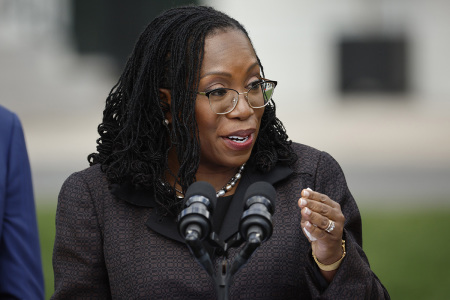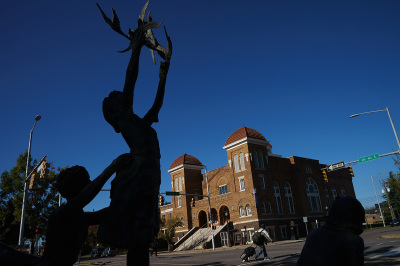Ketanji Brown Jackson to speak at 16th Street Baptist Church marking 60th anniversary of Birmingham church bombing

United States Supreme Court Justice Ketanji Brown Jackson, the first African American woman to sit on the highest court in the nation, will speak at an event in Alabama commemorating the 60th anniversary of when a church was bombed, killing four children.
Sixteenth Street Baptist Church of Birmingham will hold an event on Sept. 15 commemorating the 60th anniversary of when it was bombed by white supremacists, resulting in the deaths of four black girls and sparking national outrage.
Jackson will give the keynote address for the event, which will also feature music from the Carlton Reese Memorial and Miles College choirs and a litany and time of reflection.
The church gathering is part of a series of events happening in Birmingham on the week of Sept. 10-16 in remembrance of the tragedy, according to city officials.

Known as the 2023 Forging Justice Commemoration Week, several events will be taking place at various locations throughout the city, including discussions, speeches, a film screening and visits from international dignitaries.
“In the aftermath of that fateful day on September 15, 1963, our city and our nation had to take a hard look at itself and reckon with the devasting effects of hate and racism,” said Birmingham Mayor Randall L. Woodfin in a press release.
“Today, in the spirit of the Four Little Girls, we work to be better and honor them by preserving our history and building a future worthy of their sacrifice.”
On the morning of Sept. 15, 1963, members of the Ku Klux Klan planted a bomb at Sixteenth Street Baptist Church, an African American congregation that had supported civil rights activism.
When the bomb went off, it killed four girls: Denise McNair, Carole Robertson, Cynthia Wesley and Addie Mae Collins, and injured several others, including Sarah Collins Rudolph, Addie’s sister.
“It was a shocking, terrifying day in the history of Birmingham and a day that forced white leaders to further come to grips with the city’s bitter racist reputation,” the church recounted on its website.
“The tragedy of that Sunday produced outpourings of sympathy, concern and financial contributions from all parts of the world. More than $300,000.00 was contributed for the restoration of the damaged church.”
The tragedy gave the civil rights struggle international attention, and became a rallying point for many activists in the United States, adding momentum to the effort to successfully pass the Civil Rights Act.
Eventually, the church reopened for worship on June 7, 1964, with a donated stained-glass window from Wales that depicted a black Jesus Christ being crucified.
The investigation and conviction of the KKK members involved in the bombing took several years, mainly because locals refused to cooperate with federal authorities.
For his part in the bombing, Robert E. Chambliss was sentenced to life in prison in 1977, while Bobby Frank Cherry and Thomas E. Blanton Jr. were later sentenced to life for their involvement in 2002 and 2001, respectively.





















